
Following his success in an international artificial intelligence competition, Year 11’s Paarth Aggarwal has now spoken at a globally acclaimed education technology exhibition and show.

 Technology giant Intel asked Paarth to speak at the 2025 BETT UK after he took the national title in his age category in last year’s Intel AI Global Impact Festival. He won after impressing judges with his multi-lingual Navigate Ninja app, which uses storytelling and animated video to offer personalised learning to children with autism.
Technology giant Intel asked Paarth to speak at the 2025 BETT UK after he took the national title in his age category in last year’s Intel AI Global Impact Festival. He won after impressing judges with his multi-lingual Navigate Ninja app, which uses storytelling and animated video to offer personalised learning to children with autism.
Paarth spoke in a session in the arena at the Docklands ExCel convention centre entitled Getting real about AI. “Intel requested me to talk about my project, passion, challenges encountered, value delivered, and the next steps I am taking in scaling up this solution on to the global stage,” he said.
After preparing heavily for his talk, he began by introducing himself as a QE student and then said: “I am extremely passionate about technology as I strongly believe that it has the potential to solve almost any problem that humanity ever faces.”
Reflecting afterwards, he said it had been “an overwhelming and once-in-a-lifetime experience. Speaking in front of such a large audience was an incredible opportunity to share my passion for leveraging the new-age technology, such as AI, GenAI [Generative AI], NLP [Natural Language Processing], cloud computing etc. to transform education. I talked about how my GenAI-powered app could empower millions of people around the world through personalised learning.”
 It was, he added, a “golden opportunity to exchange thoughts, ideas and suggestions with my fellow Intel presenters, technocrats, industry leaders, and renowned organisations”.
It was, he added, a “golden opportunity to exchange thoughts, ideas and suggestions with my fellow Intel presenters, technocrats, industry leaders, and renowned organisations”.
Paarth explained that people with autism and with similar disabilities often struggle with the processing of information, making correct inferences, developing reading skills, and understanding information. He realised that existing methods of learning offer insufficiently peronalised learning. “Therefore, I developed an app which allows autistic individuals to have 24/7 access to personalised learning, multilingual learning in the language of choice, wider subject choices, and animations for enhanced comprehension and retention.”
With a basic form of his app now available on the Google play store, Paarth is working on connecting with investors and technology partners. “My next step is to refine the app and release it to a wider audience to allow millions of people from all over the world to have access to personalised and improved learning for free.”

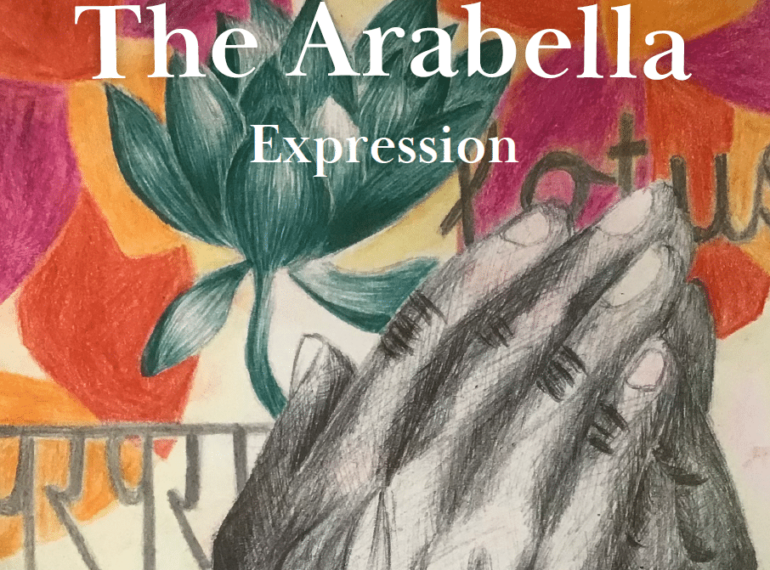
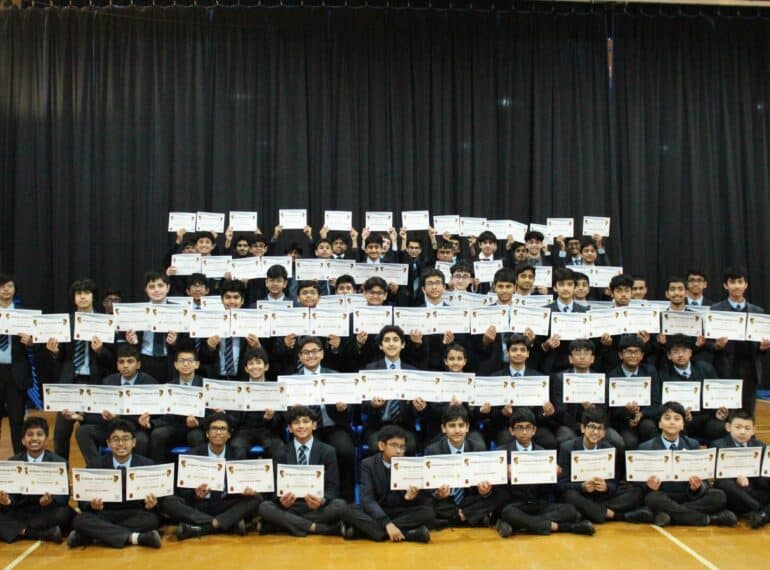
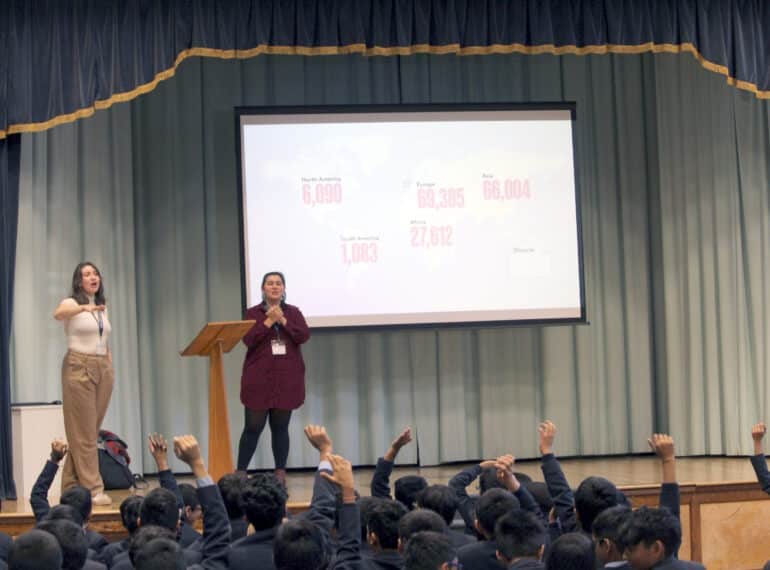
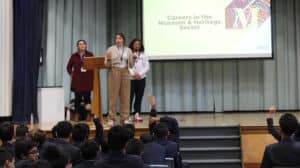 Before the visit organised by the Geography department, the whole of Year 8 had been asked to interview family members about their own migration stories and journeys.
Before the visit organised by the Geography department, the whole of Year 8 had been asked to interview family members about their own migration stories and journeys.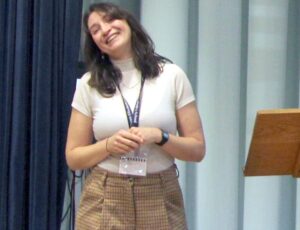 The session for the Year 8 boys ended with a Geospatial analysis of their journeys (using ArcGIS).
The session for the Year 8 boys ended with a Geospatial analysis of their journeys (using ArcGIS).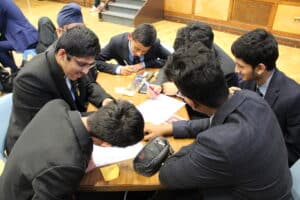 She believed that Britain’s migration history should be placed at the heart of the national story, arguing for the establishment of the museum based on her time as Minister and on visits to similar museums in other parts of the world – notably Ellis Island in New York.
She believed that Britain’s migration history should be placed at the heart of the national story, arguing for the establishment of the museum based on her time as Minister and on visits to similar museums in other parts of the world – notably Ellis Island in New York.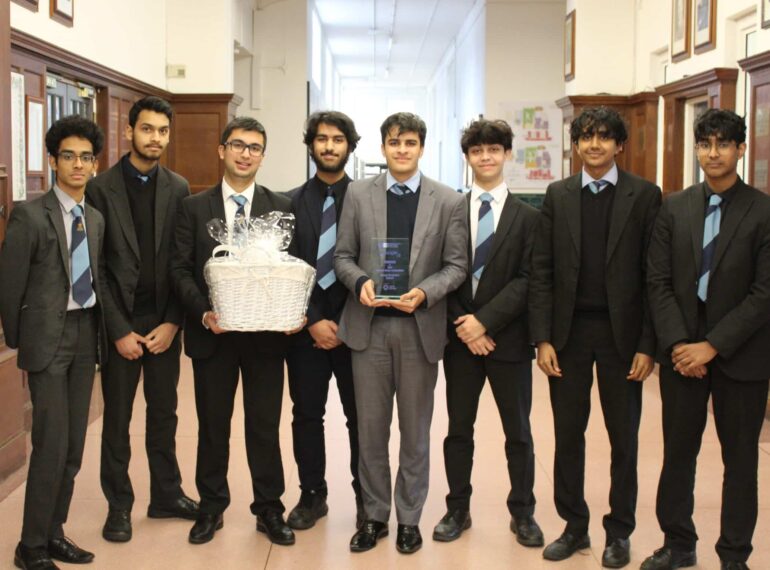
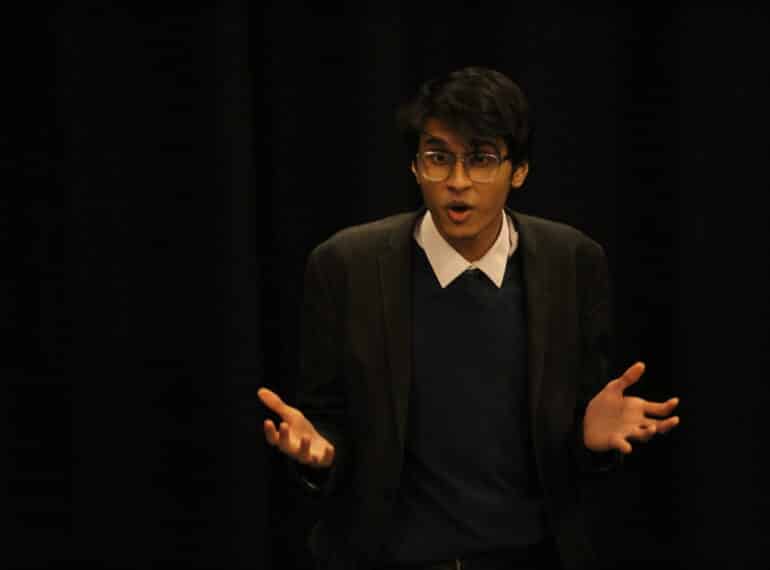
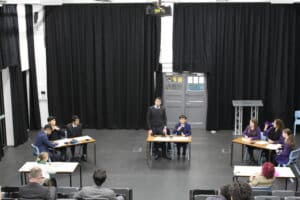 The studio, created from two existing large rooms towards the rear of the Main Building, hosted early rounds of the English Speaking Union’s Schools’ Mace debating contest and of the national Performing Shakespeare competition.
The studio, created from two existing large rooms towards the rear of the Main Building, hosted early rounds of the English Speaking Union’s Schools’ Mace debating contest and of the national Performing Shakespeare competition.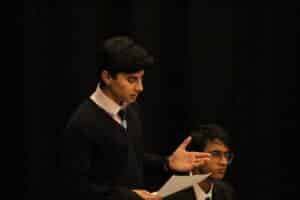 At the Mace, the country’s oldest and largest debating competition for schools, a senior QE team – including School Captain Chanakya Seetharam, as well as Zaki Mustafa, and Koustuv Bhowmick, all from Year 13 – took on Haberdashers’ Girls’ School. Other leading schools from North London and Hertfordshire also competed. The QE team won the event to progress to the second-round heats in January.
At the Mace, the country’s oldest and largest debating competition for schools, a senior QE team – including School Captain Chanakya Seetharam, as well as Zaki Mustafa, and Koustuv Bhowmick, all from Year 13 – took on Haberdashers’ Girls’ School. Other leading schools from North London and Hertfordshire also competed. The QE team won the event to progress to the second-round heats in January. 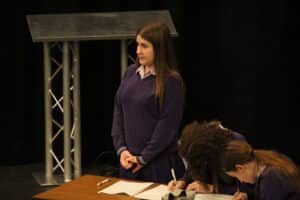 Head of English Robert Hyland said: “There are some things which reading Shakespeare simply as words on the page can never give – so much of the impact of his work comes from how performers have chosen to interpret, following the rhythms and the imagery of the poetry to bring the words to life.
Head of English Robert Hyland said: “There are some things which reading Shakespeare simply as words on the page can never give – so much of the impact of his work comes from how performers have chosen to interpret, following the rhythms and the imagery of the poetry to bring the words to life. 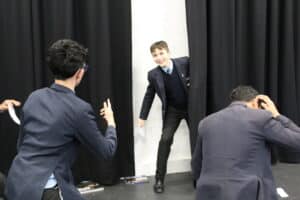 The special English lesson held in RDS also focused on Shakespeare, looking at scene 3 from act 3 of
The special English lesson held in RDS also focused on Shakespeare, looking at scene 3 from act 3 of 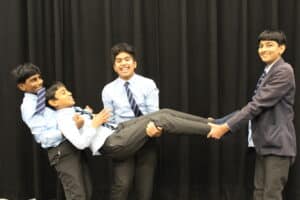 “We subsequently returned to the language, thinking about the delivery of the speech which Ariel gives, and what key or words ideas come to light when presented dramatically.”
“We subsequently returned to the language, thinking about the delivery of the speech which Ariel gives, and what key or words ideas come to light when presented dramatically.” 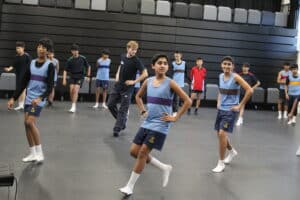 ENB dancers and a musician later came to QE and gave the boys a two-hour contemporary ballet workshop, testing the RDS’s audio equipment to the full. They explored ways of moving, inspired by the plot, characters and choreography of
ENB dancers and a musician later came to QE and gave the boys a two-hour contemporary ballet workshop, testing the RDS’s audio equipment to the full. They explored ways of moving, inspired by the plot, characters and choreography of 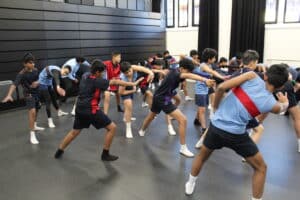 “Best of all though was the enthusiasm and energy the boys put into their dancing. Who knows – maybe the next Akram Khan has just learnt his first dance steps?
“Best of all though was the enthusiasm and energy the boys put into their dancing. Who knows – maybe the next Akram Khan has just learnt his first dance steps?